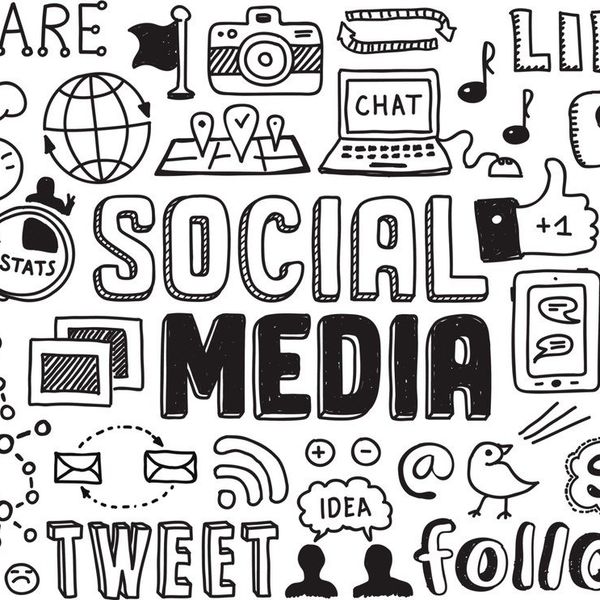The music is blaring from the instruments slung across the guitarist’s back and the speakers lining the stage. The beat vibrates the floor. The crowd swallows you, as they dance and sing out of tune. The night is unforgettable. You are lost, consumed by the music and the atmosphere.
You look to your right and your friend is slowly spinning 360 degrees, with her phone clasped in both hands raised slightly above our heads, as the camera absorbs the surroundings.
“What are you doing,” you ask.
Your friend is taking a Snapchat for her story.
Snapchat, Instagram, Twitter and Facebook are ingrained in all that we do. They are active participants of all the events in our lives. From recording thrilling concerts to snapping some photos of our morning breakfast, these social media networks are not only a part of our routine, but also an active member of our daily lives.
There is an undeniable urgency to post. We post what we are doing, how we feel, what we are wearing and who we are with. Not only that, but there is an urge to share only the best parts of our life and our identity. But why? Why do we have an instinctive reaction to share with our friends the most entertaining, the most exciting, and the most intriguing parts of ourselves, instead of sharing all that we are?
A possible reason is the likes. After posting each Instagram status, you continuously check the app for at least 48 hours after you posted, trolling for any new likes.
“Social media for me is like a lot of smoke and mirrors – proving why you’re important, why you’re relevant…When I was in Singapore, one of the clubs would book artists and had their fees relevant to what their Facebook numbers were,” said Instagram Co-Founder Kevin Systrom (Source).
Social media portals instill a culture of dependency in our society. We depend on the number of likes as a direct representation of our worth. Although as a child we are taught to be who we are and say what we feel despite the opinions of others, social media defies this notion. We use social media portals as a way for people to reassure us that who we are and what we are doing is acceptable.
“I think it feels crummy to have to market yourself all day long; the whole notion of a personal brand got very, very popular and still persists today, as people manage all their profiles,” Snapchat Founder Evan Spiegal said (Source).
The beauty of social media is that you have the sole power to market yourself in the way that you want people to see you. You can manipulate photos, captions and filters to manufacture a specific persona that you want people to see. You have the power to determine how others will judge you. Are you photogenic? Are you witty? Are you artistic? Are you adventurous? You decide the persona you have online. The power is in your hands.
There is an irony in participating in social media. We keep tabs on how many likes we get for an updated profile picture, a witty tweet or a filtered photo with friends on Instagram. We seek recognition from others that what we are doing and who we are is acceptable and admired. Therefore, we are a prisoner to the opinions of others. However, before each of these posts, we decide who we are. We have the power to be, or at least convey, the parts of ourselves that we want to share with the world, concealing the parts of ourselves that we want to hide.
My advice is to unapologetically be who you are, both online and offline. Social media is a way to celebrate all that you are, and share it with people who will love you for it. When it becomes a means to find acceptance, it’s dangerous because you are putting your worth in someone else’s hands.




















